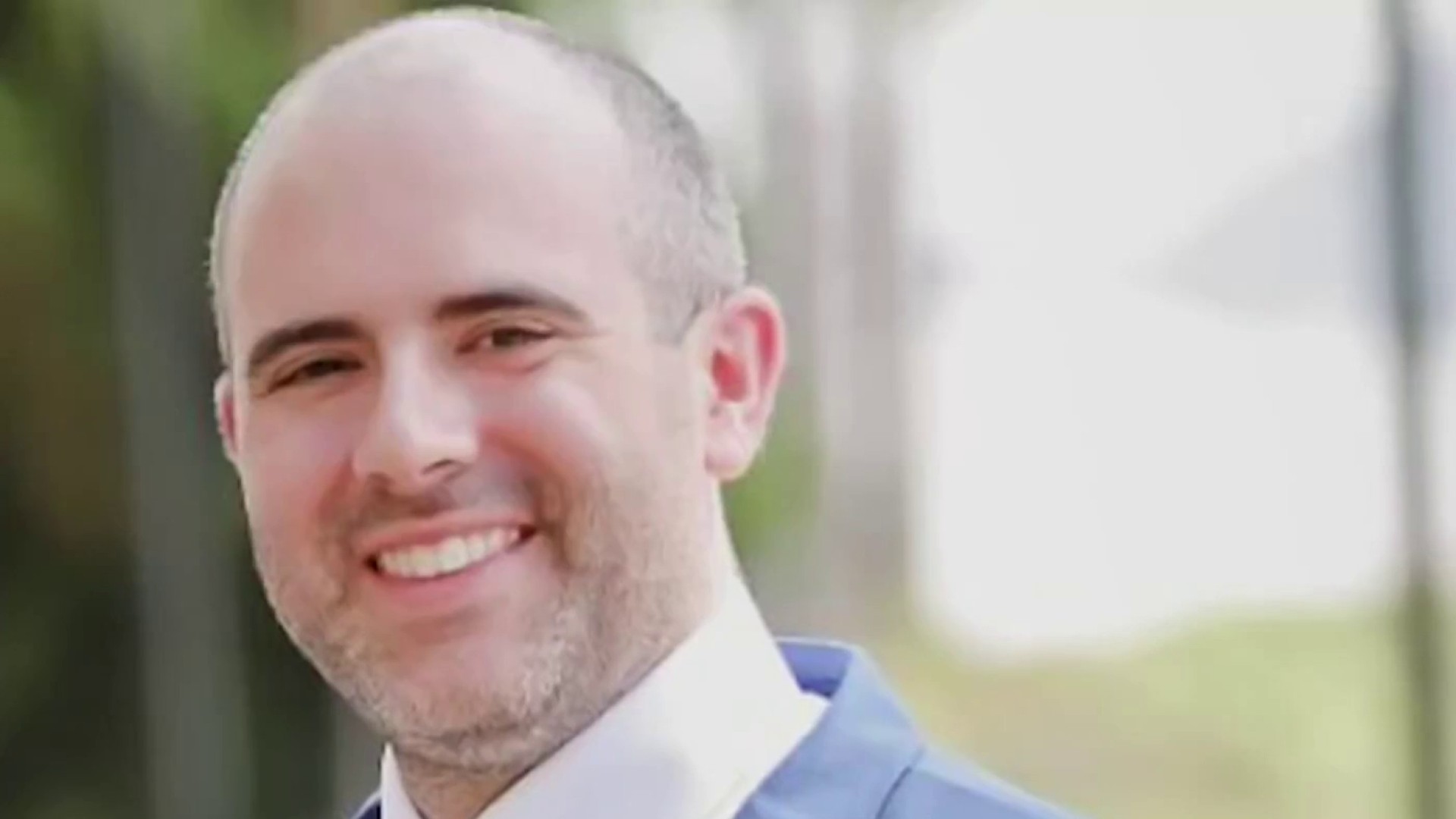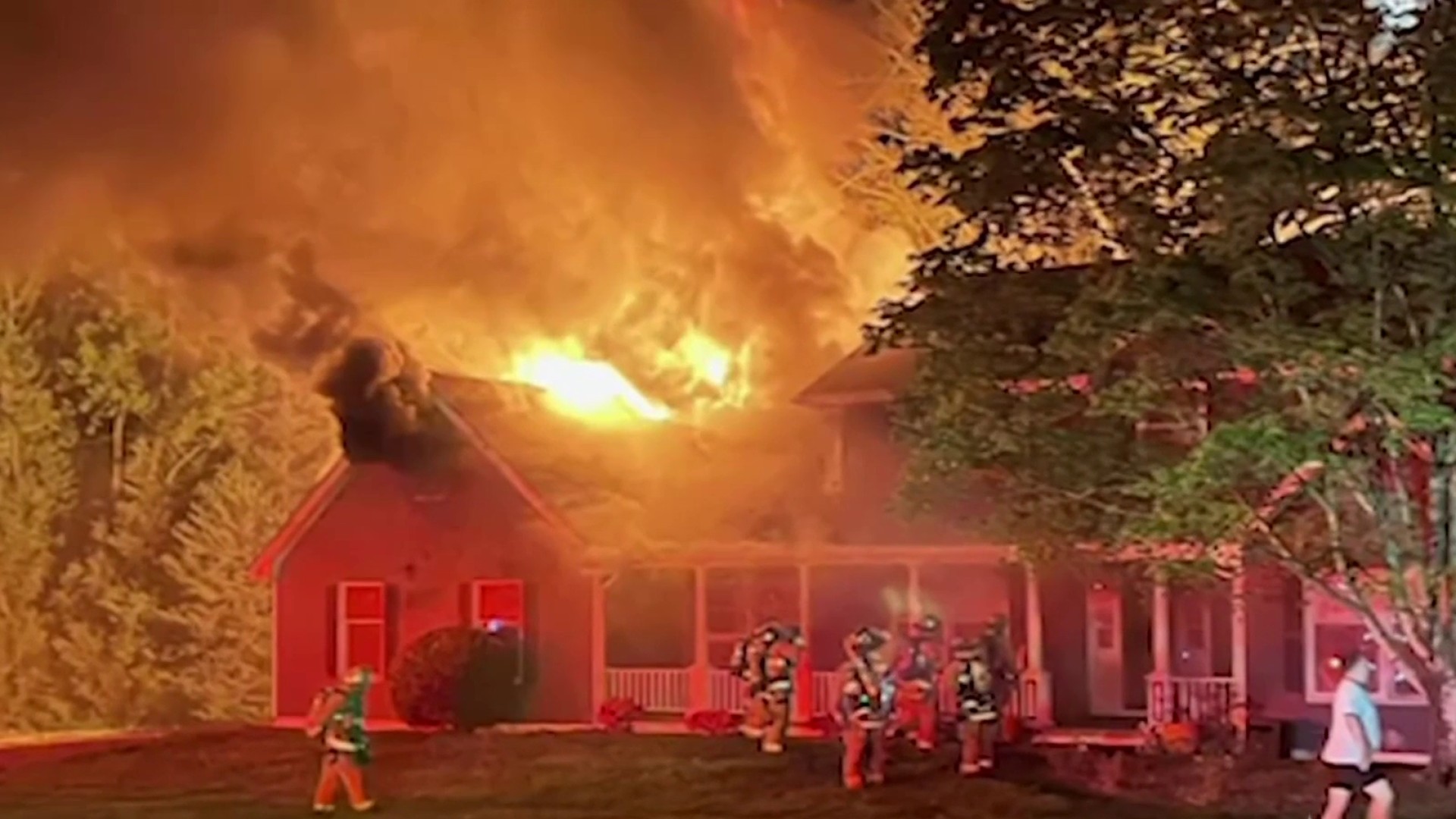Harry Jaffe, a longtime chronicler of the people and politics of Washington, D.C., writes a column for NBC Washington's First Read DMV blog.
Finally, a scandal-worthy controversy that’s hit a nerve in the District and could help determine who might prevail as the next mayor.
Is it crime, schools, jobs? Nope.
Try video screens streaming ads mounted on buildings throughout downtown.
“I’ve gotten kudos all over the city for coming out against these signs,” says at-large council member Elissa Silverman. “Every ANC has agreed with my position.”
Turns out most Washingtonians prefer downtown buildings that are not festooned with huge TV screens. Who wants to be bombarded by ads as they are strolling to work or driving across town?
Answer: developers and owners of professional sports teams.
Local
Washington, D.C., Maryland and Virginia local news, events and information
Silverman says this seemingly arcane issue of digital video screens has “divided the city between big money interests and regular citizens.”
The political class has taken sides.
Pulling for the regular people – i.e., voters – we have Attorney General Karl Racine, Silverman and Anita Bonds, also an at-large member.
Standing alone on the side of the big bucks we have Mayor Muriel Bowser.
Beyond politics, there’s aesthetics. If developers and arena owners are allowed to stream video ads from their properties, D.C. would join New York’s Times Square and the Las Vegas strip as one of the few cities that permit the practice.
Huge jumbotrons attached to Verizon Center and Gallery Place in Chinatown have been streaming video for years, much to the chagrin of nearby residents and office workers. Monumental Sports and Entertainment owner Ted Leonsis and his lobbyists have fought back all attempts to rein in the videos, which circumvent D.C. regulations thanks to special legislation promoted by Ward 2 council member Jack Evans.
Nationals Park owners asked Council to allow streaming video from the stadium on South Capitol Street, but legislators balked. After a series of public hearings, where neighbors objected to jumbotrons, Council passed a bill prohibiting full motion video except before and after a game.
Meanwhile, Digi Media started erecting multi-media signs in buildings all over downtown. A boutique media company, Digi couldn’t get permits, but it proceeded to install digital signs with the goal of erecting 52 at 20 different locations, according to court documents.
The city ordered Digi to quit putting up electronic signs. Digi ignored the orders.
In rides Attorney General Karl Racine. Astride his white horse, he asks the court last August to force Digi to quit. Superior Court Judge Alfred Irving agreed with Racine and ordered Digi to stop sign construction last November.
“The public, especially downtown residents, want a comprehensive and transparent sign policy,” Racine tells me, “not piecemeal rule making that will benefit a few businesses.”
Robin Diener, president of the Dupont Circle Citizens Association, was thrilled by Racine’s victory. “We feel these signs are an incursion on the public space,” she said. “It’s advertising that goes to someone’s bottom line and offers nothing of value to us.”
Responding to those concerns, Ward 3 Councilmember Mary Cheh introduced legislation that would expand the Nationals Park ruling citywide. It would prohibit streaming video signs across D.C, except before, during and after sporting events.
Elissa Silverman and Anita Bonds quickly signed on as cosponsors. Chairman Phil Mendelson set a hearing date later this month. This week Cheh suddenly withdrew her bill.
“How come?” I asked Silverman.
“Ask Mary,” she said. “I was surprised. She never informed me.”
Cheh failed to respond to multiple requests for comment.
This all puts Mayor Bowser in a bit of a fix.
Word had it that her top aides were drafting emergency legislation that would undercut Racine’s lawsuit and allow Digi Media to erect its signs in Ward 2, which encompasses Georgetown, Dupont Circle and parts of Shaw, as well as downtown.
When I asked Bowser’s chief of staff John Falcicchio whether her office was working on legislation concerning full motion video, he responded: “No.”
And when my colleague, Mark Segraves, this week asked Bowser whether she was considering changing rules to allow digital signs, she responded: “I don’t know that we are.”
It’s possible an expose by City Paper’s Jeff Anderson put the brakes on the Digi exemption rule. Maybe Bowser has decided not to battle billboard opponents.
But there’s no doubt this made it pretty far along.
Witness a “Notice of Emergency and Proposed Rulemaking” that came into my hands. The rule out of Bowser’s office would revise regulations to specifically permit Digi to install a sign “if it directly faces passengers entering or exiting a Metrorail escalator” or if it was applied for by August 1, 2016.
The rule is an “emergency” because “action is necessary in order to facilitate settlement of ongoing litigation.” In other words, it would negate Racine’s lawsuit.
The rule has yet to make it out of the mayor’s office, but the fact that it was written and ready to submit raises questions about her claim she was unaware of her own proposal.
Karl Racine, the District’s first elected AG, has been cagey about whether he might challenge Bowser next year. My guess is he will not take her on; he’s more likely to run for another term.
But should Racine decide to run for mayor, stopping the big TV screens could prove he’s the people’s champion, standing up for their rights against “the man” -- in this case Mayor Bowser.



